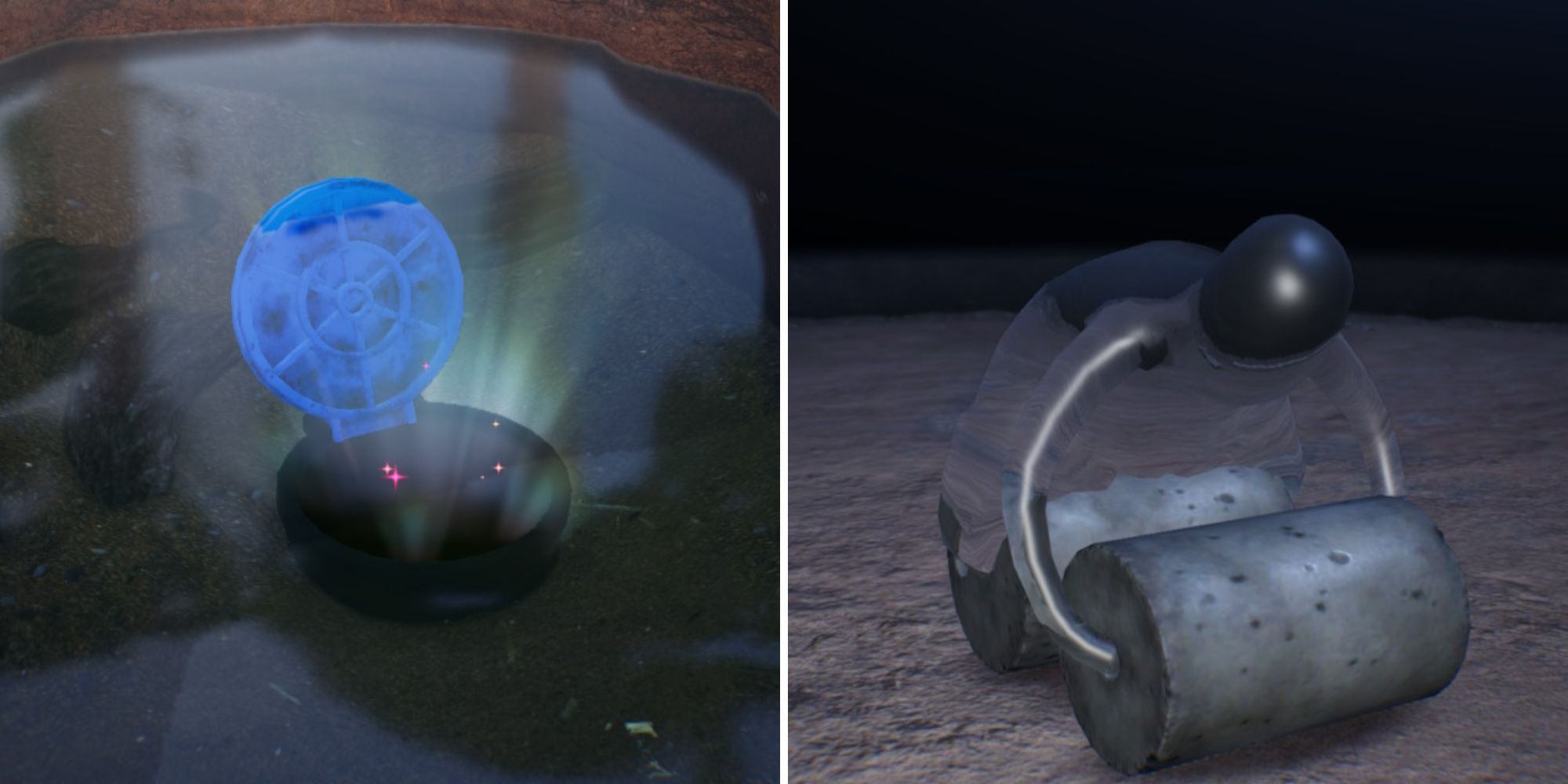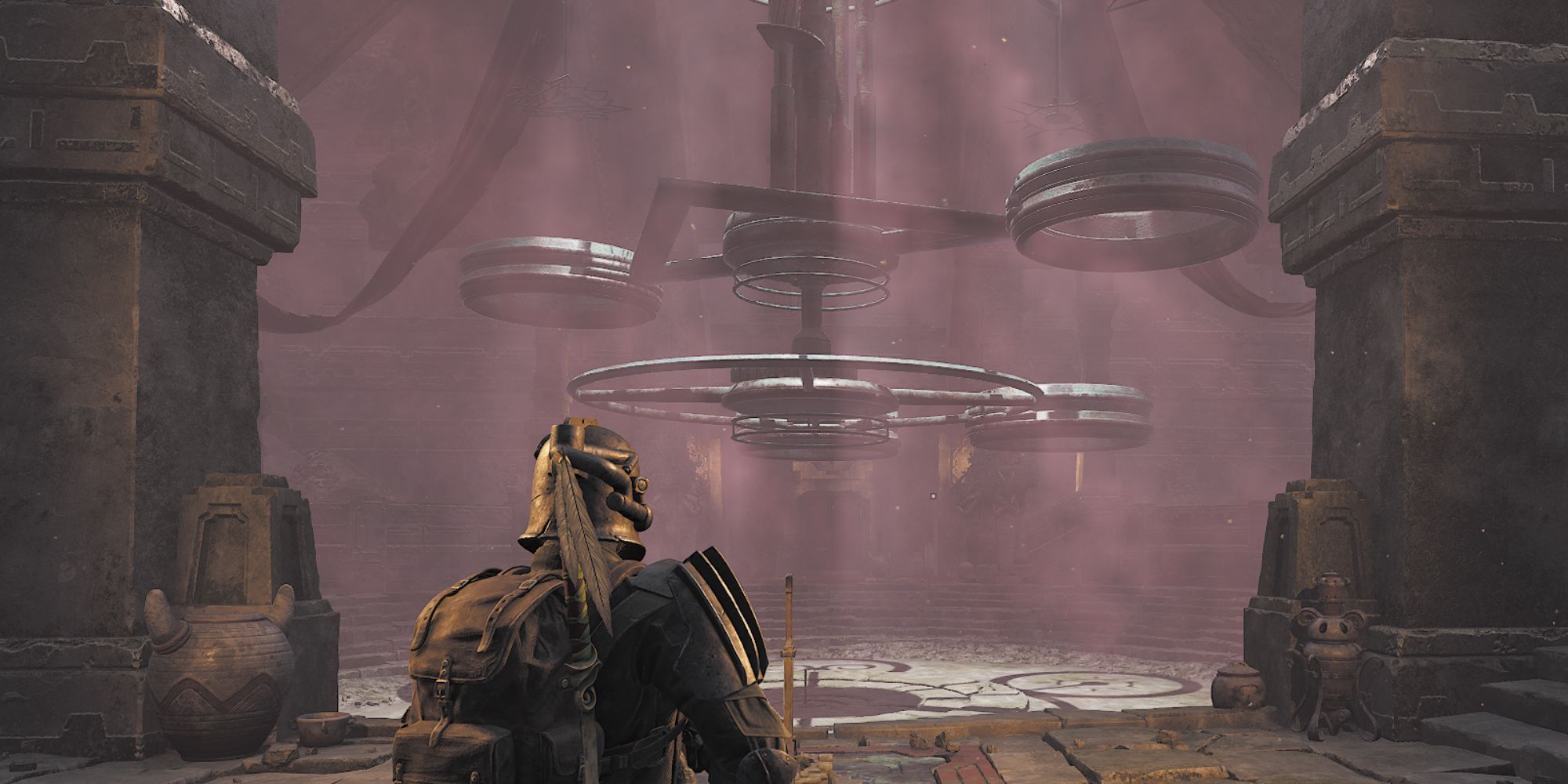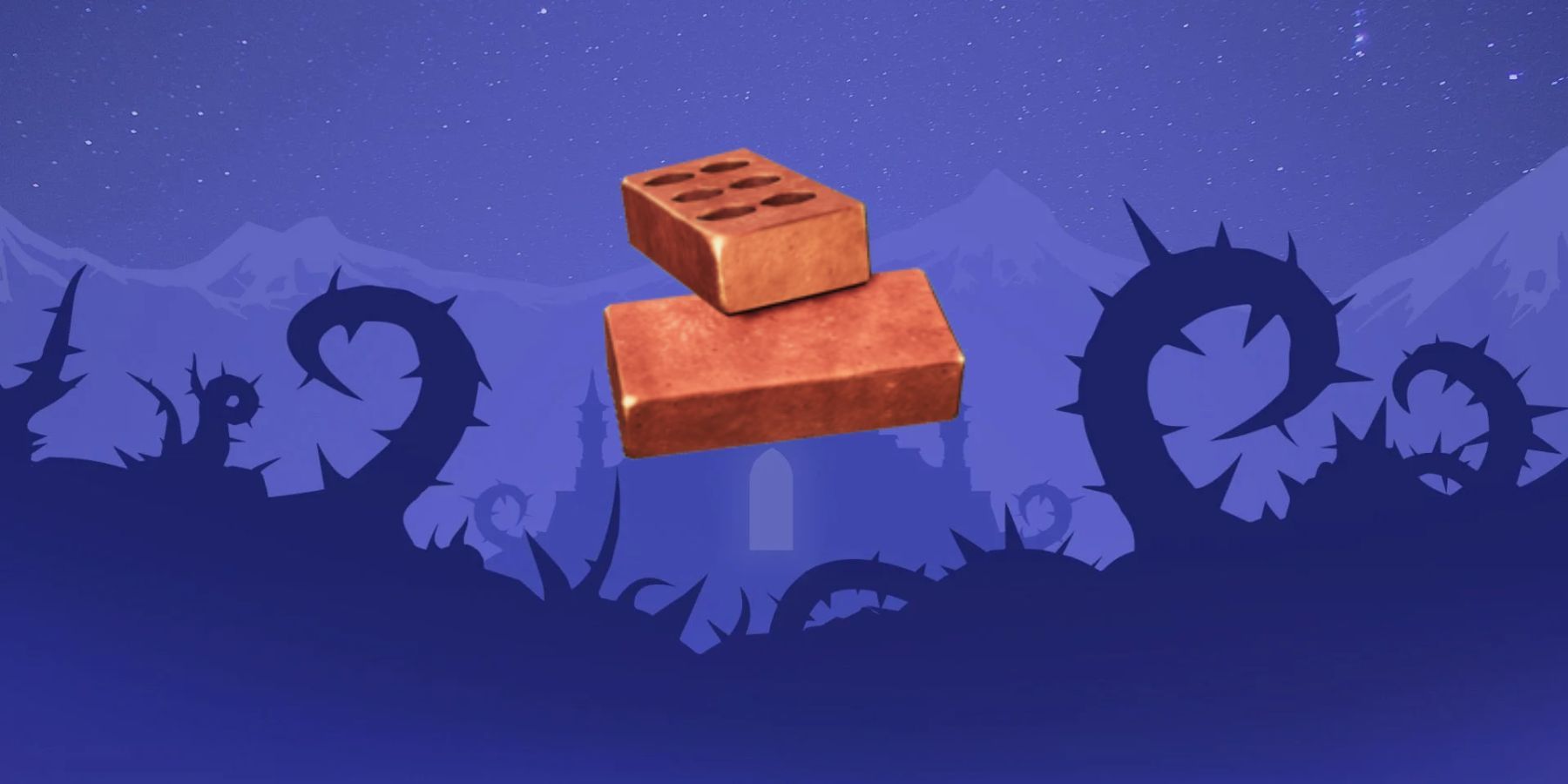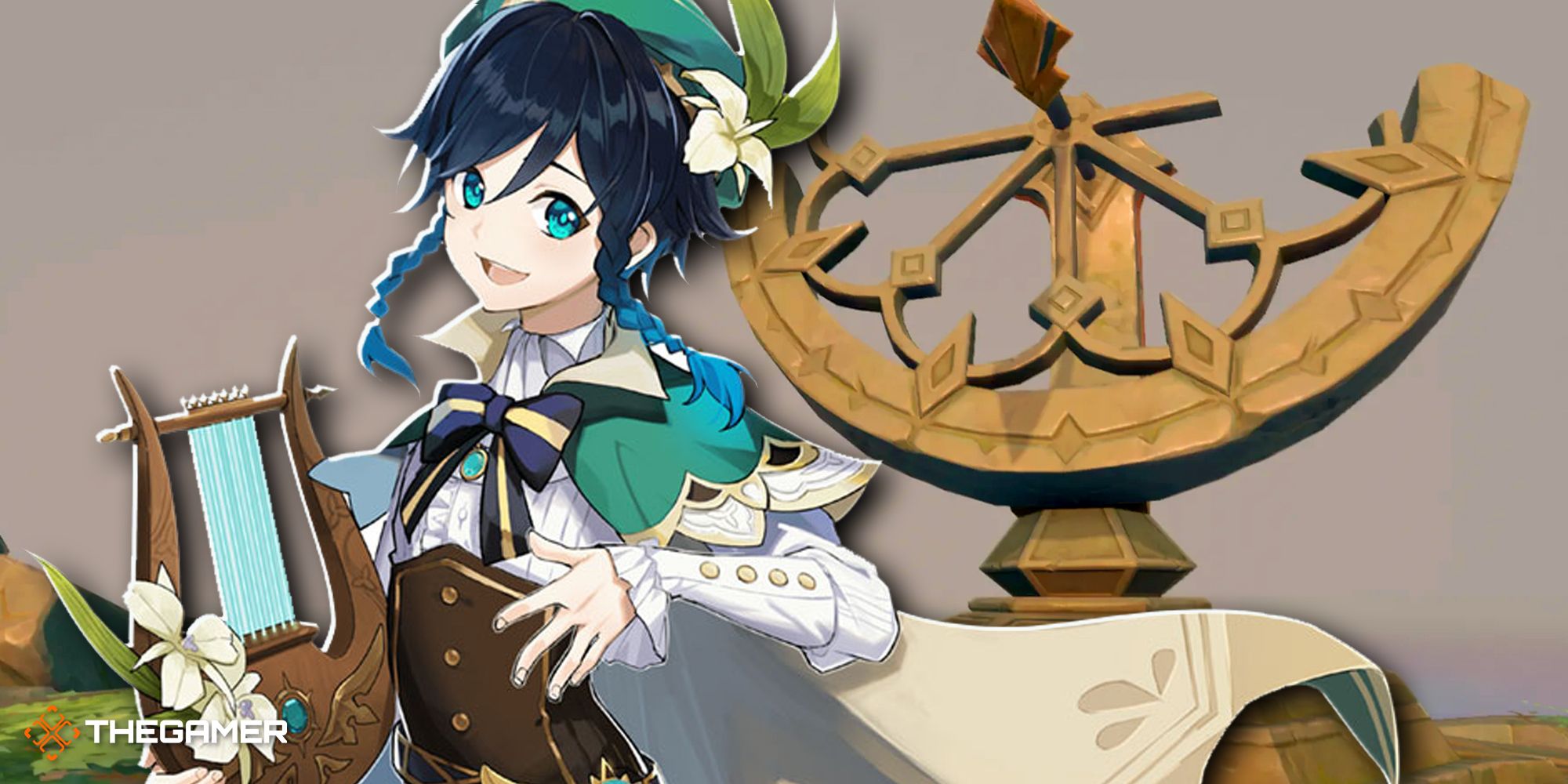Baldur’s Gate 3 Proficiency, Spiegato’ In Baldur’s Gate 3, proficiency is an important aspect of your character’s development. But what exactly does it mean to be proficient? Well, allow me to explain in a way that even a gelatinous cube could understand. Proficiency in Baldur’s Gate 3 refers to your character’s skill and knowledge in certain areas. It’s like being a master chef, but instead of cooking delicious meals, you’re slaying monsters and casting spells. When you create your character, you’ll be able to choose a class and background. Each class and background will grant you proficiency in specific skills and tools. For example, a rogue might be proficient in stealth and lockpicking, while a wizard might be proficient in arcana and spellcasting. Being proficient in a skill or tool means you have a bonus when using or performing that particular thing. So, if your character is proficient in perception, they’ll have an easier time spotting hidden enemies or secret doors. If they’re proficient in a weapon, they’ll be more accurate and deal more damage when attacking with it. But proficiency isn’t just limited to skills and tools. You can also become proficient in saving throws and armor. Saving throws are like your character’s ability to resist certain effects, like a barbarian’s resistance to being poisoned or a bard’s resistance to being charmed by a dashing rogue. Armor proficiency determines whether you can effectively wear and use certain types of armor. As you level up, you’ll gain more proficiency choices. You can either become more proficient in skills you already have, or you can choose to become proficient in new skills or tools. It’s like leveling up your cooking skills from making a basic omelette to becoming a master sushi chef. So, my fellow adventurers, make sure to pay attention to your proficiency choices in Baldur’s Gate 3. It can make a world of difference in your battles and interactions. And who knows, maybe one day you’ll become a legendary hero known for your incredible proficiency in all things adventuring. Good luck and happy gaming!
Baldur's Gate 3 Proficiency, Explained' In Baldur's Gate 3, proficiency refers to your character's skill and knowledge in specific areas. It's like being a master chef, but instead of cooking, you're slaying monsters and casting spells. When creating your character, you'll choose a class and background that grant you proficiency in certain skills and tools. For example, a rogue might be proficient in stealth and lockpicking, while a wizard might be proficient in arcana and spellcasting. Being proficient means you have a bonus when using that skill or tool. It helps with things like spotting hidden enemies or dealing more damage with a weapon. You can also become proficient in saving throws and armor, which help resist certain effects and determine what types of armor you can use. As you level up, you'll gain more proficiency choices. You can improve existing skills or choose new ones, like leveling up your cooking skills. So, pay attention to your proficiency choices in Baldur's Gate 3. It can make a big difference in your battles and interactions. Good luck and happy gaming!
Link Rapidi
- Cos’è la Competenza?
- Cosa Influisce la Competenza e Ne Ho Bisogno?
- Come Ottengo la Competenza?
La competenza in Baldur’s Gate 3 è un fattore importante da tenere a mente quando si sceglie tra le numerose caratteristiche del personaggio. Dalle classi alle razze, dagli antecedenti e altro ancora: le tue scelte influenzeranno il tuo potenziale nel gestire le sfide future, e le competenze rafforzano tale potenziale.
COLLEGATO: Baldur’s Gate 3: Verifica delle Abilità, Spiegata
Certo, c’è sempre l’elemento della fortuna quando si effettuano i tiri, ma non vorresti avere anche solo un piccolo vantaggio? Sapere come funzionano le competenze e cosa influenzano ti aiuterà a prendere alcune delle scelte più importanti il Primo Giorno e quelle che farai lungo il tuo percorso nell’avventura.
Cos’è la Competenza?
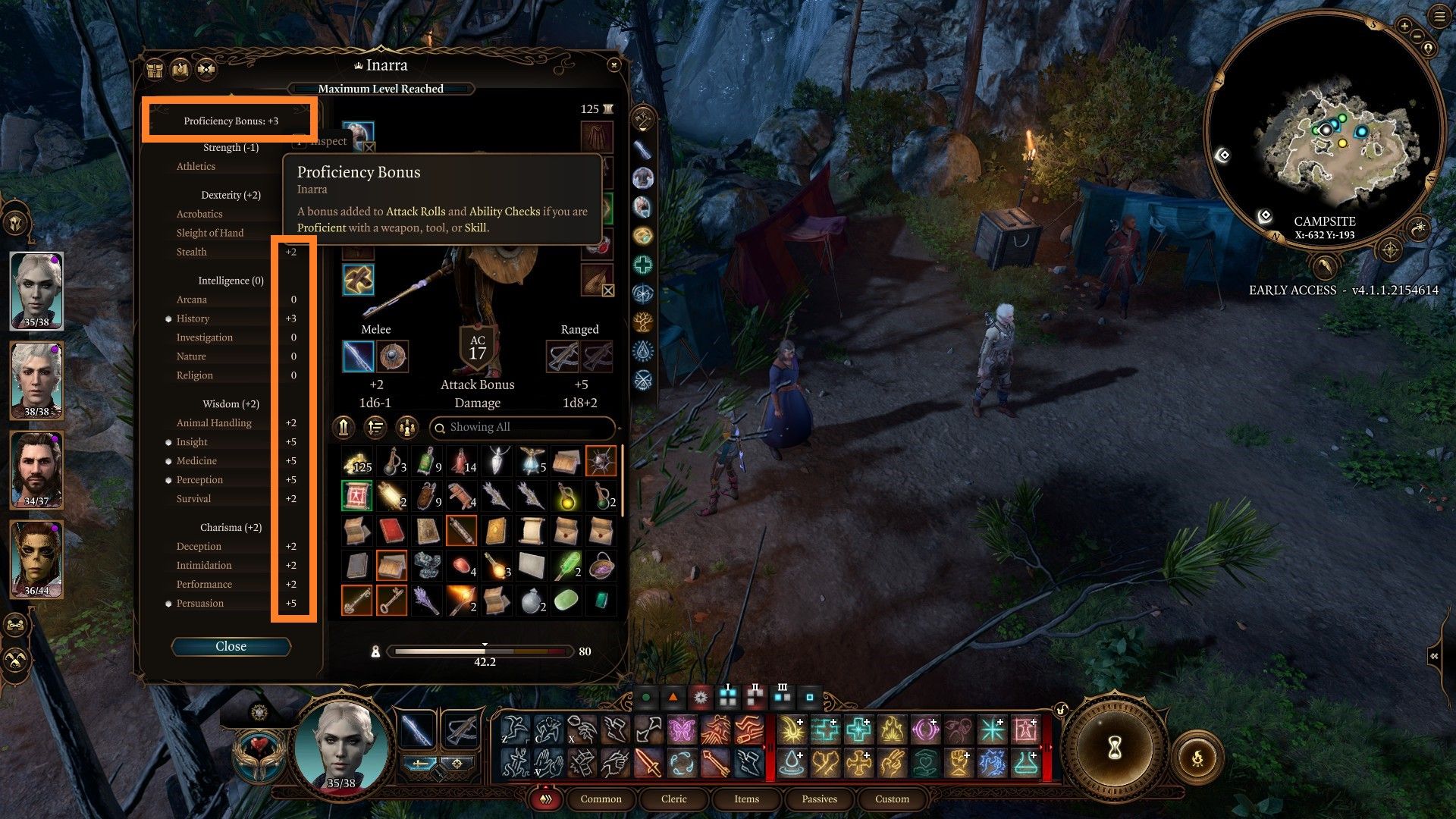
Quando sei competente in un determinato compito o con un determinato oggetto, ottieni un bonus speciale chiamato “Competenza”. Questo bonus viene automaticamente applicato a tutti i tiri o controlli che effettui con la competenza di cui sei dotato.
Puoi essere competente in:
- Baldur’s Gate 3 Guida ai Compagni
- Pokemon Sleep Come Evolvere i Pokemon
- Remnant 2 Come Ottenere la Pietra Lunare d’Ambra
- Abilità (come Atletica o Acrobatica)
- Strumenti (liuti, flauti, ecc.)
- Lingue
- Strumenti (Attrezzi da Ladro, Attrezzi da Artigiano, ecc.)
- Tiri Salvezza
- Armi
- Armature
- Giochi
Il punteggio che ottieni dalla competenza con un compito o un oggetto è chiamato “Bonus di Competenza”.
Un Bonus di Competenza è un numero statico che può aumentare solo in determinati livelli. Indipendentemente dalla classe o razza che scegli, il Bonus di Competenza sarà lo stesso per tutti i personaggi dello stesso livello.
|
Livello |
Bonus di Competenza |
Livello |
Bonus di Competenza |
|---|---|---|---|
|
1 |
+2 |
11 |
+4 |
|
2 |
+2 |
12 |
+4 |
|
3 |
+2 |
13 |
+5 |
|
4 |
+2 |
14 |
+5 |
|
5 |
+3 |
15 |
+5 |
|
6 |
+3 |
16 |
+5 |
|
7 |
+3 |
17 |
+6 |
|
8 |
+3 |
18 |
+6 |
|
9 |
+4 |
19 |
+6 |
|
10 |
+4 |
20 |
+6 |
Di cosa influisce la competenza e ne ho bisogno?
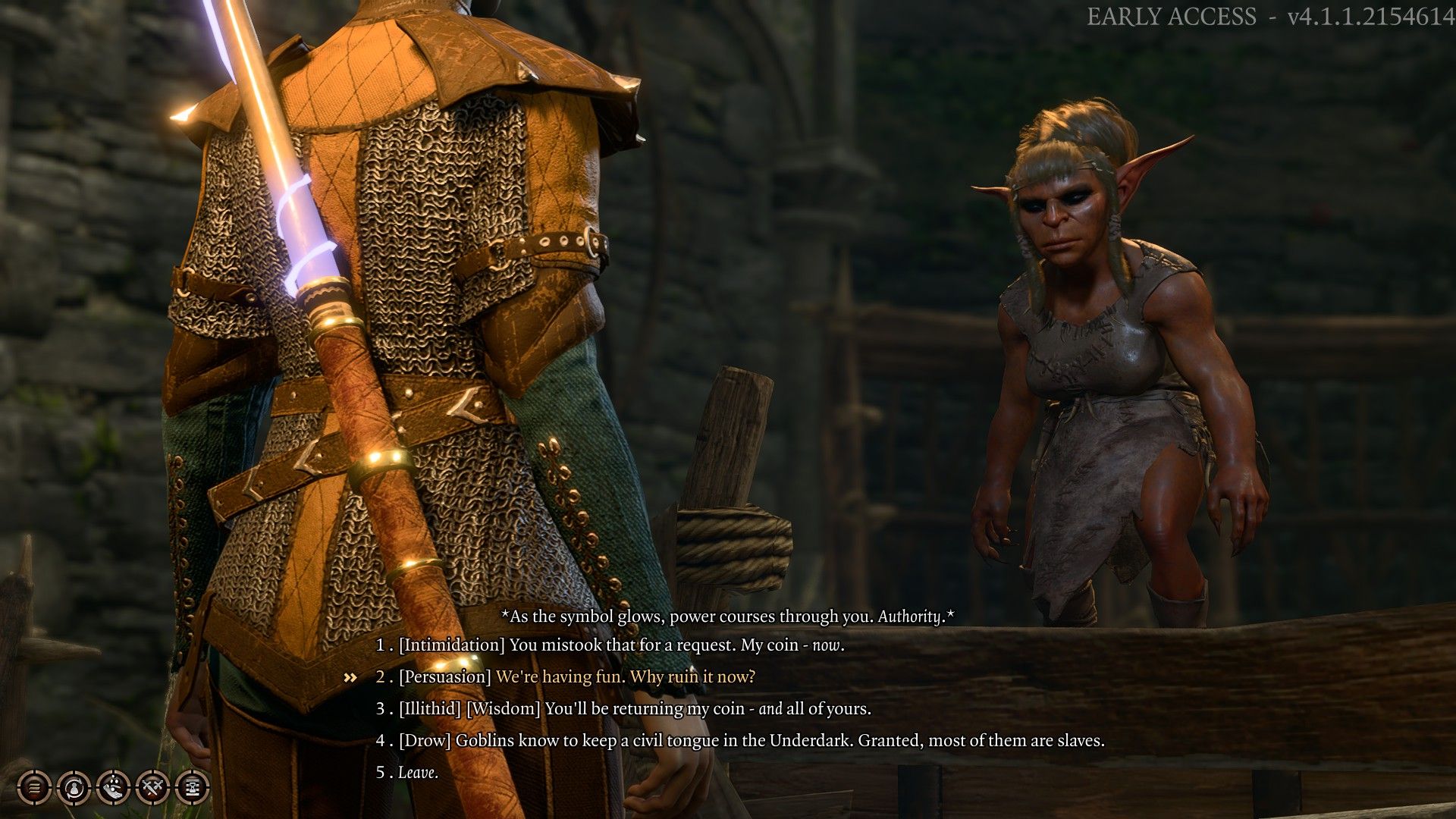
Essere competenti in qualcosa non significa sempre riuscire in un compito. Allo stesso modo, non essere competenti in qualcosa non significa fallire.
La competenza è semplicemente un bonus che otterrai che può aiutare le tue possibilità di successo, ma non garantirle.
Riceverai penalità quando cerchi di maneggiare o utilizzare tipi di equipaggiamento in cui non sei competente, ma non riceverai penalità quando cerchi di completare compiti sconosciuti.
Come ottengo la competenza?

Quando crei un personaggio per la prima volta, la tua classe ti darà due competenze automatiche nei tiri salvezza, che sono pre-determinate dalla classe stessa (non puoi scegliere). Se vuoi più competenze nei tiri salvezza, dovrai fare multiclasse.
Per quanto riguarda le abilità, puoi diventare competente nelle abilità attraverso:
- Oggetti (effetto temporaneo)
- Abilità speciali
- Classi
- Background
- Razza
Quando inizi con la selezione del personaggio, la maggior parte dei personaggi potrà scegliere un background per due competenze nelle abilità (e forse una competenza nell’uso di strumenti). La razza potrebbe anche dare competenze in particolari lingue o abilità (alcune danno anche competenze nell’uso delle armi).
Infine, le classi di solito offrono due-quattro abilità, la possibilità di ottenere competenze nell’uso di strumenti e oggetti, e competenze nell’uso delle armi e delle armature.
PROSSIMO: Baldur’s Gate 3: Difficulty Class, Spiegazione
